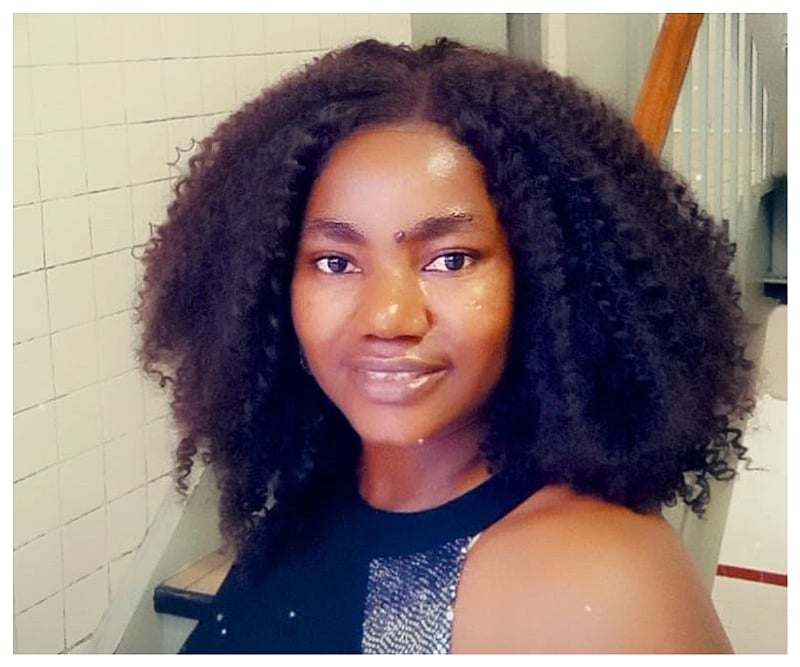Ijeoma’s declaration of her desire for a financially supportive husband has ignited a complex debate about gender roles, financial expectations within marriage, and the evolving dynamics of modern relationships. Her statement, “I want to be financially provided for,” encapsulates a perspective that challenges prevailing notions of financial independence and shared responsibility in partnerships while simultaneously resonating with traditional views on the provider role of men within the family structure. This seemingly simple statement has unearthed deeper societal questions about the balance between personal agency and financial reliance, the interplay of love and economic security, and the evolving expectations within marital unions.
At the heart of the discussion lies Ijeoma’s explicit expectation of a bi-weekly allowance from her future husband, intended to cover her personal expenses, ranging from clothing and cosmetics to shoes and other necessities. This demand, even in the context of her own potential income, raises questions about the nature of financial partnership within marriage. Does her desire for a separate allowance imply a lack of trust or transparency regarding shared finances? Or does it represent a desire for personal autonomy and control over a portion of the household income, regardless of her own earning potential? This articulation of financial expectations challenges conventional notions of a joint marital economy where resources are pooled and managed collectively. Her stance raises questions about the perceived fairness of such an arrangement and whether it fosters a healthy sense of shared responsibility or potentially creates an imbalance of power within the relationship.
Furthermore, Ijeoma’s assertion that her husband’s money is “our money” adds another layer of complexity to the debate. This statement, juxtaposed with her demand for a personal allowance, appears contradictory. It suggests a sense of entitlement to her husband’s earnings while simultaneously maintaining a separate purse for her individual expenses. This dichotomy raises questions about the nature of ownership and control within a marital union. Does her definition of “our money” imply shared decision-making and equal access to resources, or does it reflect a more traditional view where the husband’s earnings are considered the primary source of household income while the wife retains control over a portion for personal use? This ambiguity underscores the nuanced and often contested understanding of financial partnership within marriage.
Moreover, Ijeoma’s emphasis on her husband being the primary breadwinner and assuming full responsibility for household finances reinforces traditional gender roles. This expectation, while potentially rooted in cultural norms and historical precedents, clashes with contemporary trends towards greater financial independence among women. Her preference for a provider husband challenges the evolving concept of partnership based on shared responsibilities, where both spouses contribute financially and participate in decision-making. This divergence in perspectives highlights the ongoing tension between traditional values and modern expectations within the context of marriage and financial responsibility.
The online reactions to Ijeoma’s pronouncements reflect the diverse spectrum of opinions on this complex issue. While some applaud her honesty and transparency in articulating her desires, others criticize her expectations as unrealistic, entitled, and potentially detrimental to a healthy marital partnership. Supporters argue that she has the right to express her preferences and seek a partner who aligns with her vision of a successful marriage. They emphasize the importance of open communication and compatibility in building a strong foundation for a long-term relationship. Conversely, critics contend that her expectations reinforce outdated gender stereotypes and place undue financial burden on her future husband. They argue that such an arrangement could create an imbalance of power within the relationship and potentially undermine the sense of mutual respect and shared responsibility that is crucial for a thriving partnership.
Ultimately, Ijeoma’s statement has sparked a crucial conversation about the evolving landscape of marriage, the complex interplay of financial expectations, and the diverse perspectives on gender roles within relationships. This discussion underscores the importance of open communication, mutual understanding, and shared values in navigating the complexities of modern partnerships. It also highlights the ongoing evolution of societal norms and the diverse range of expectations that individuals bring to the institution of marriage in the 21st century. This debate extends beyond the personal preferences of one individual and reflects broader societal trends and evolving definitions of partnership, equality, and financial responsibility within the context of committed relationships.














